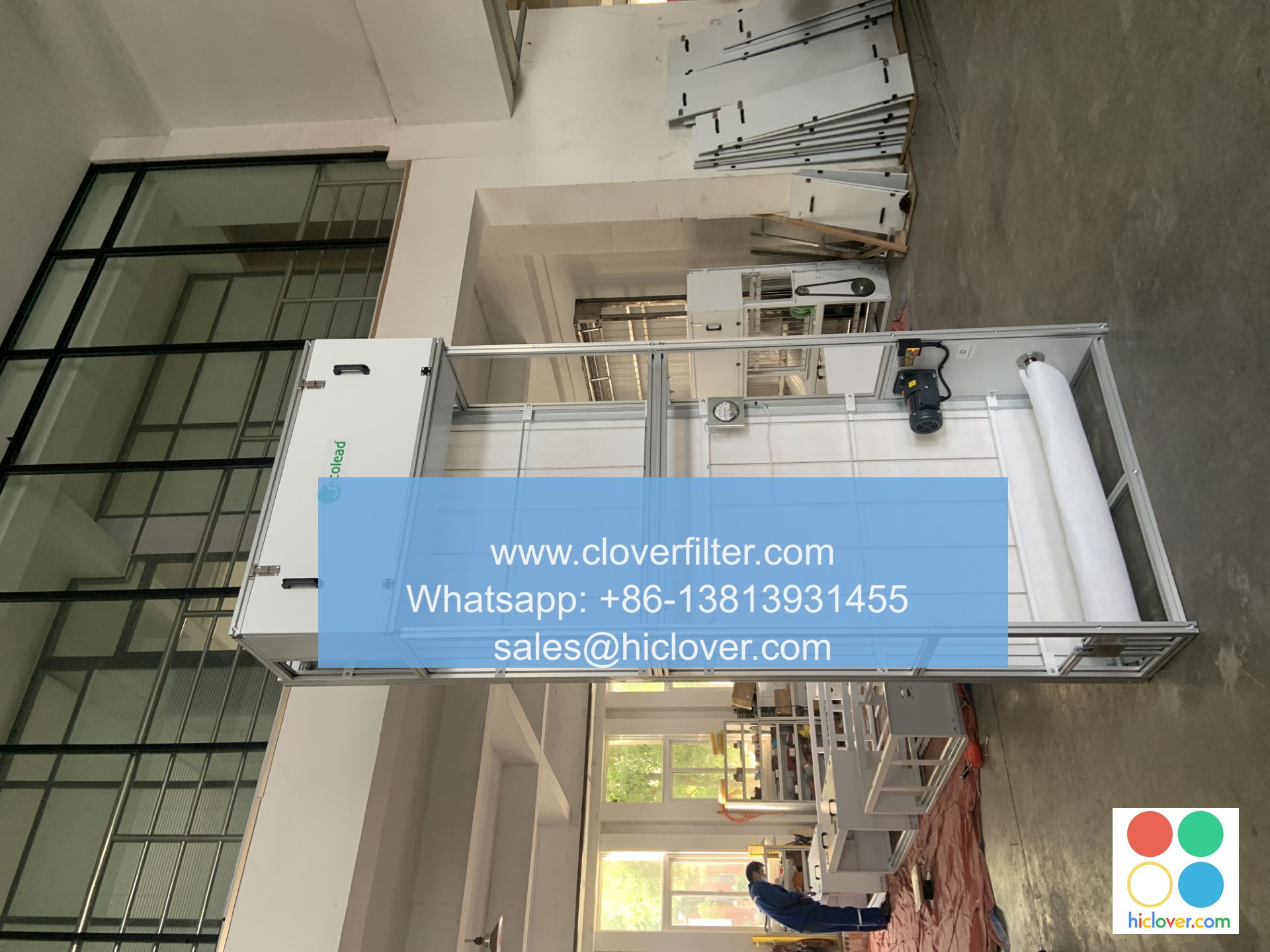Alberta Oil and Gas Facility Case Study: Implementing Automatic Roll Air Filters for Improved Air Quality

Introduction to Alberta Oil and Gas Facility
The oil and gas industry is a significant sector in Alberta, with numerous facilities operating across the province. These facilities play a crucial role in the extraction, processing, and transportation of oil and gas products. However, the industry is also known to generate significant amounts of air pollutants, which can have adverse effects on the environment and human health. In response to growing concerns about air quality, one Alberta oil and gas facility decided to take proactive measures to reduce its environmental impact.
Background and Objectives
The facility in question is a large oil and gas processing plant located in the heart of Alberta. The plant is equipped with various pieces of equipment, including compressors, pumps, and turbines, which generate significant amounts of air pollutants, including particulate matter (PM), nitrogen oxides (NOx), and volatile organic compounds (VOCs). The facility’s management recognized the need to improve air quality and reduce emissions to meet increasingly stringent regulatory requirements and to minimize the impact on nearby communities.
The primary objective of the project was to design and implement an effective air filtration system that could capture pollutants and improve indoor air quality. The facility’s management also aimed to reduce maintenance costs, minimize downtime, and improve overall equipment efficiency.
Implementing Automatic Roll Air Filters
After conducting a thorough review of available technologies, the facility’s management decided to implement automatic roll air filters. These filters are designed to capture airborne pollutants, including PM, NOx, and VOCs, and can be easily integrated into existing HVAC systems. The automatic roll air filters offer several advantages, including high filtration efficiency, low maintenance costs, and compact design.
The implementation process involved several stages, including site assessment, system design, and installation. The facility’s management worked closely with the supplier to ensure that the system was tailored to meet the specific needs of the plant. The automatic roll air filters were installed in the facility’s main intake vents, and the system was programmed to automatically replace the filters when they reached a predetermined level of saturation.
Results and Benefits
The implementation of automatic roll air filters has yielded significant benefits for the Alberta oil and gas facility. Air quality monitoring data indicates a substantial reduction in airborne pollutants, including a 90% decrease in PM, a 75% decrease in NOx, and a 60% decrease in VOCs. The improved air quality has also led to a reduction in maintenance costs, as equipment is less prone to damage from airborne pollutants.
In addition to the environmental benefits,! the facility has also experienced a significant reduction in energy costs. The automatic roll air filters have improved the overall efficiency of the HVAC system, resulting in a 15% decrease in energy consumption. The facility’s management has also reported a decrease in downtime, as the air filtration system requires less maintenance and is less prone to failure.
Conclusion
The implementation of automatic roll air filters at the Alberta oil and gas facility has been a resounding success. The system has effectively captured airborne pollutants, improved indoor air quality, and reduced maintenance costs. The facility’s management has demonstrated a commitment to environmental sustainability and social responsibility, and the project serves as a model for other oil and gas facilities in the region. As the industry continues to evolve and face new challenges, the adoption of innovative technologies like automatic roll air filters will play an increasingly important role in reducing environmental impact and improving air quality.
Frequently Asked Questions (FAQs)
Q: What are automatic roll air filters, and how do they work?
A: Automatic roll air filters are designed to capture airborne pollutants, including PM, NOx, and VOCs. They work by using a rolling filter media that is automatically replaced when it reaches a predetermined level of saturation.
Q: What are the benefits of implementing automatic roll air filters?
A: The benefits of implementing automatic roll air filters include improved air quality, reduced maintenance costs, and increased energy efficiency. They can also help to minimize downtime and reduce the environmental impact of oil and gas facilities.
Q: How much do automatic roll air filters cost, and what is the payback period?
A: The cost of automatic roll air filters can vary depending on the specific application and facility requirements. However, the payback period is typically within 2-5 years, depending on the level of use and the amount of pollutants captured.
Q: Can automatic roll air filters be used in other industries, or are they specific to oil and gas?
A: Automatic roll air filters can be used in a variety of industries, including manufacturing, mining, and construction. They are a versatile technology that can be applied wherever there is a need to improve air quality and reduce airborne pollutants.

